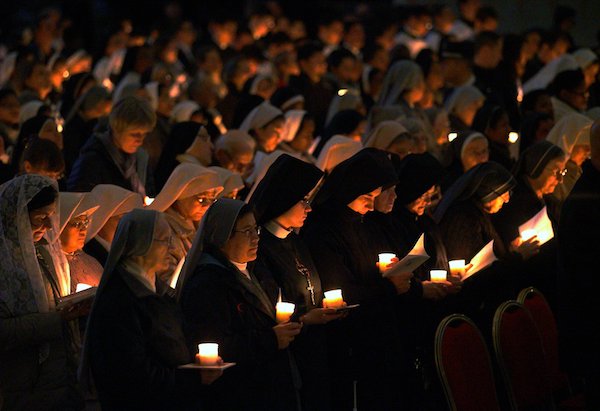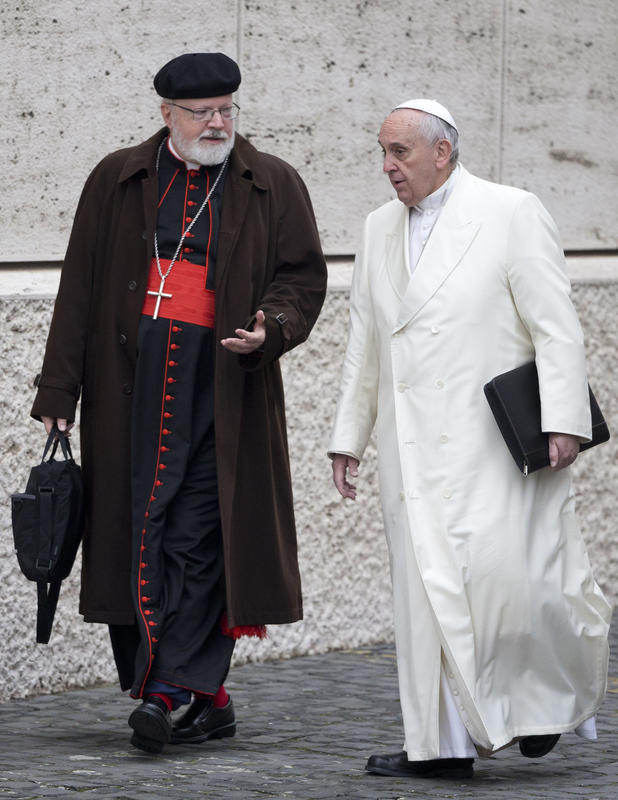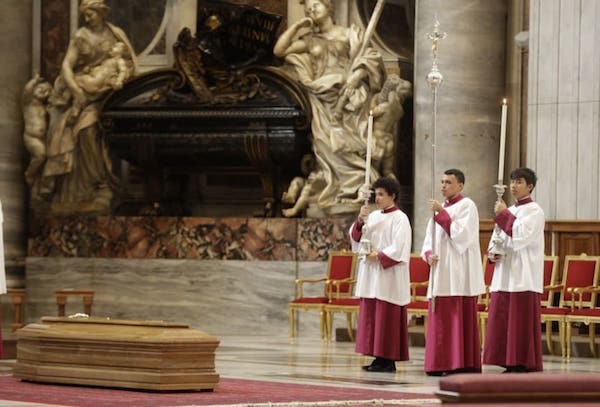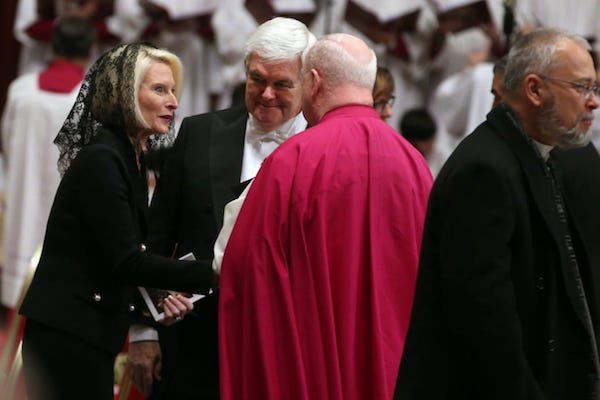
Sister Marie told of nuns who worked long hours to cook and clean for cardinals and bishops, without being asked to break bread at the same table.
Sister Paule pointed out that many nuns did not have registered contracts with the bishops, schools, parishes or congregations they worked for, “so they are paid little or not at all.”
Sister Cécile said that “nuns are seen as volunteers to have available at one’s calling, which gives rise to abuse of power.”
These stories — told by sisters using pseudonyms — were revealed Thursday in an exposé about how nuns are exploited by the leaders and institutions of the Roman Catholic Church. The article, by the French journalist Marie-Lucile Kubacki, was published in the March edition of Women Church World, the monthly magazine on women distributed alongside the Vatican newspaper L’Osservatore Romano.
he stories amount to a distress signal about the unfair economic and social conditions many nuns experience, as well as the psychological and spiritual challenges that many face.
“In the eyes of Jesus we are all children of God,” said the nun identified as Sister Marie, “but in their concrete life some nuns do not live this, and they experience great confusion and discomfort.”
The article was part of an issue dedicated to “Women and Work,” which touched on subjects already familiar to readers of the women’s magazine, like maternity and women in the church, but also the gender pay gap and unpaid domestic work.
It came about after discussions with nuns and observations about how they were treated in the Vatican, where they often provide “subordinate services,” said Lucetta Scaraffia, a feminist intellectual and the editor of Women Church World, which was introduced under Pope Benedict XVI.

Though convents also depend on the money generated by the sisters living there, many nuns, unlike priests, are not paid, or are poorly paid, when they attend conferences or when they preach, she said.
But the article, “The (Nearly) Free Work of Sisters,” noted that it was not just a question of money. A bigger problem, the article pointed out, is that many sisters say that while male vocations are valued, the work of women is not.
“Behind all this is still the unfortunate idea that women are worth less than men, and above all that the priest is everything while sisters are nothing in the church,” Sister Paule said in the article.
The article confirmed that while women have been clamoring to have a greater role in the decision making of the male-centric Catholic Church, the road is still steep.
Still, some efforts are underway to address the problem. The annual Voices of Faith conference, which aims to showcase the “underutilized potential of women to exercise leadership at all levels of the Catholic Church” will take place at the Vatican on March 8.
And a “Manifesto of Women for the Church,” also published in the March issue of Women Church World, calls for giving women “roles that are coherent with our competences and capacities.” The document has circulated on social media and is being shared by women who are active in church institutions and parishes throughout Italy.
Pope Francis, who is said to read the magazine, has raised the matter of women’s roles in the church before, but his concerns have yet to be translated into concrete changes.
At an audience in May 2016, Francis was asked by one of the 900 leaders of female religious orders and congregations who form part of the International Union of Superiors General why the organization was not given a bigger say in the operation of the church.

Francis said at the time that “very often I find consecrated women who perform a labor of servitude and not of service,” and he urged the sisters to “have the courage to say no” when their superiors “asked for something that is more servitude than service.”
Sisters should be in the streets, in schools and with the sick and poor rather than carrying out errands for a parish priest, he said.
“When a consecrated woman is asked to perform a work of servitude, the life and dignity of that woman are demeaned,” the pope said. “Her vocation is service: service to the church. But not servitude!” (His comments that day were overshadowed by an off-the-cuff comment about setting up a commission to study whether women could serve as deacons in the church.)
The pope has said that his concerns apply to women in the church in general. In its Friday edition, which came out Thursday, L’Osservatore Romano published a preface written by the pope for a Spanish-language book on Francis and women.
The pope wrote that he was concerned about a chauvinist mentality that persists in societies that leads to acts of violence. “And I am concerned that in the church itself, the role of service to which every Christian is called, often, in the case of women, slides into roles of servitude rather than service,” he wrote.
Paola Lazzarini Orrù, a sociologist and one of the authors of the manifesto in the magazine said some parishes had begun to invite women to speak during Mass. “Priest have begun to understand this is an issue that can no longer be ignored,” she said.
In the article, Sister Cécile said it was time for nuns to speak out. “Now when I am invited to hold a conference, I no longer hesitate to say I want to be paid, and how much I expect,” she said.
“It’s a question of survival for our communities,” she added, because she and her sisters live off this income.
But “change is difficult,” Ms. Scaraffia said. “Many prelates don’t want to hear these things, because it is easier to have nuns” who play subservient roles.
Complete Article ↪HERE↩!





